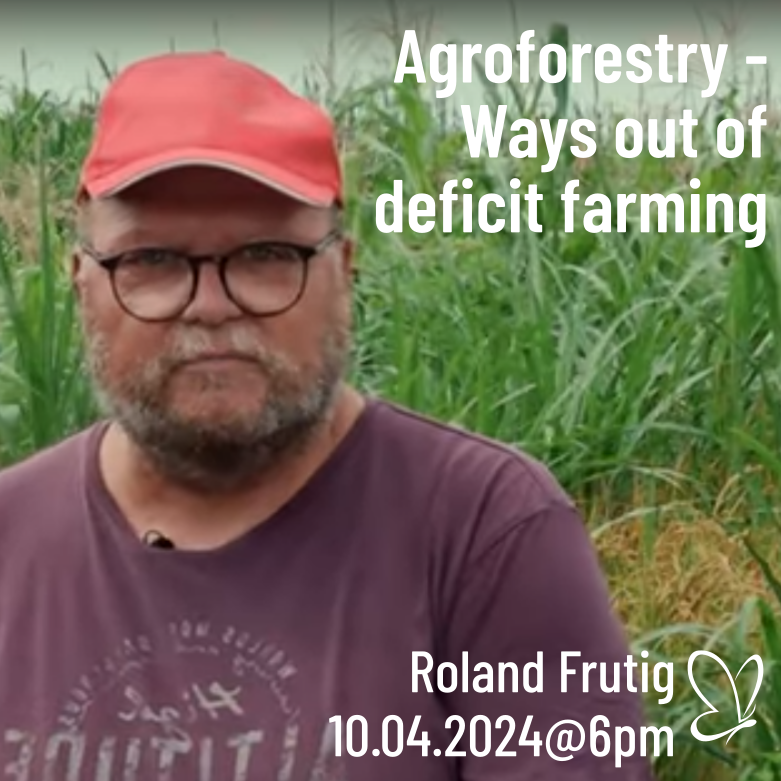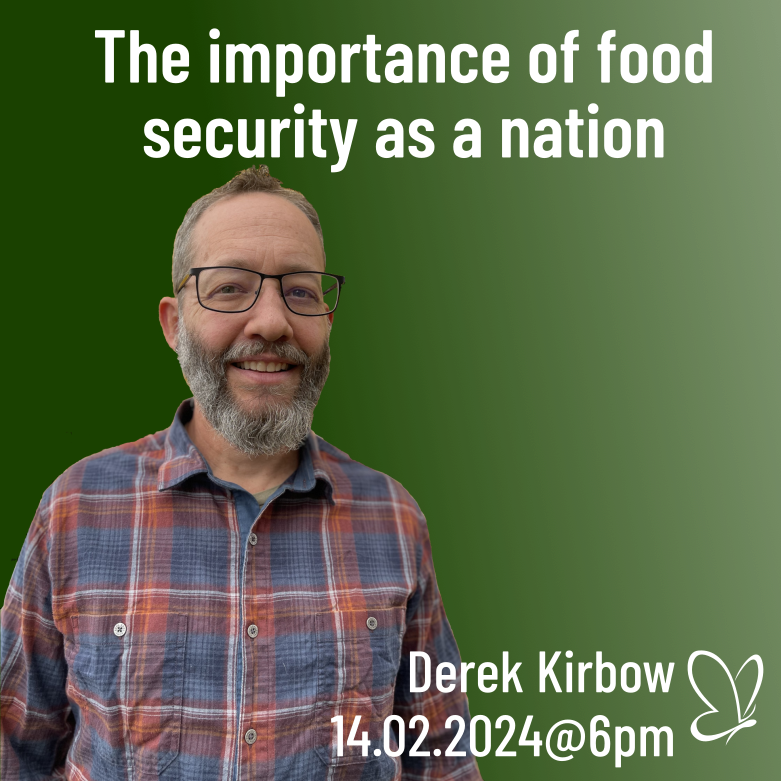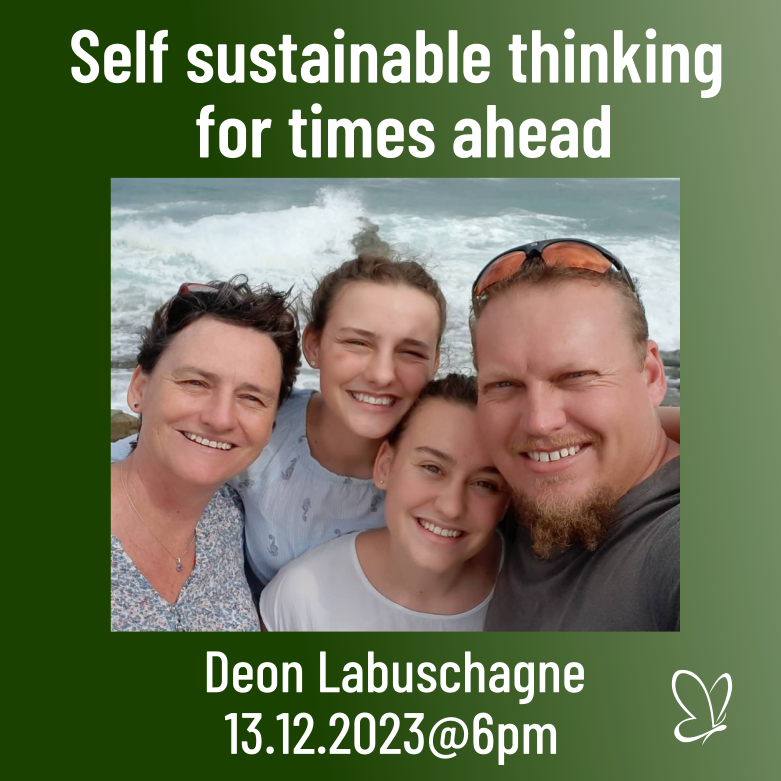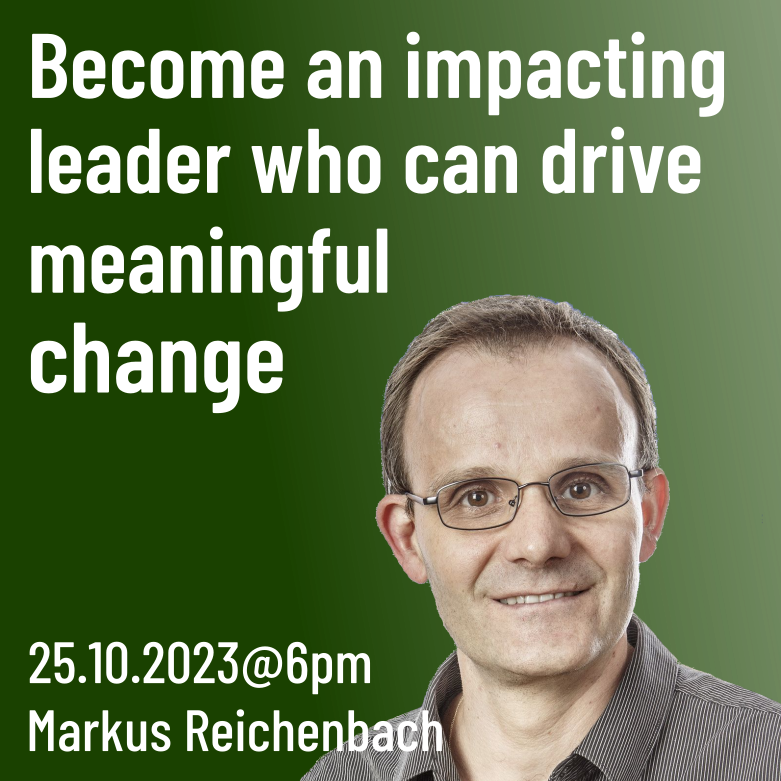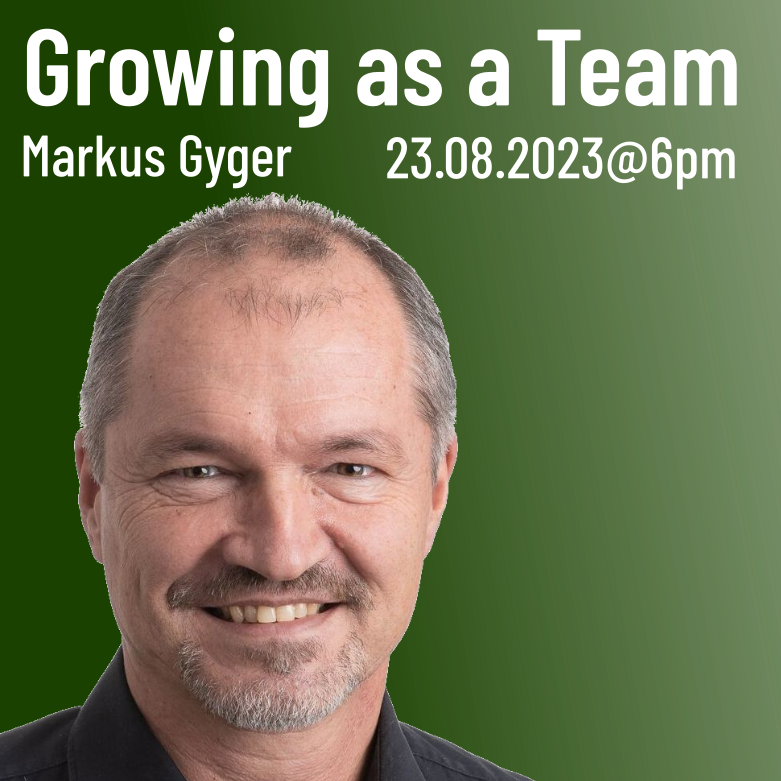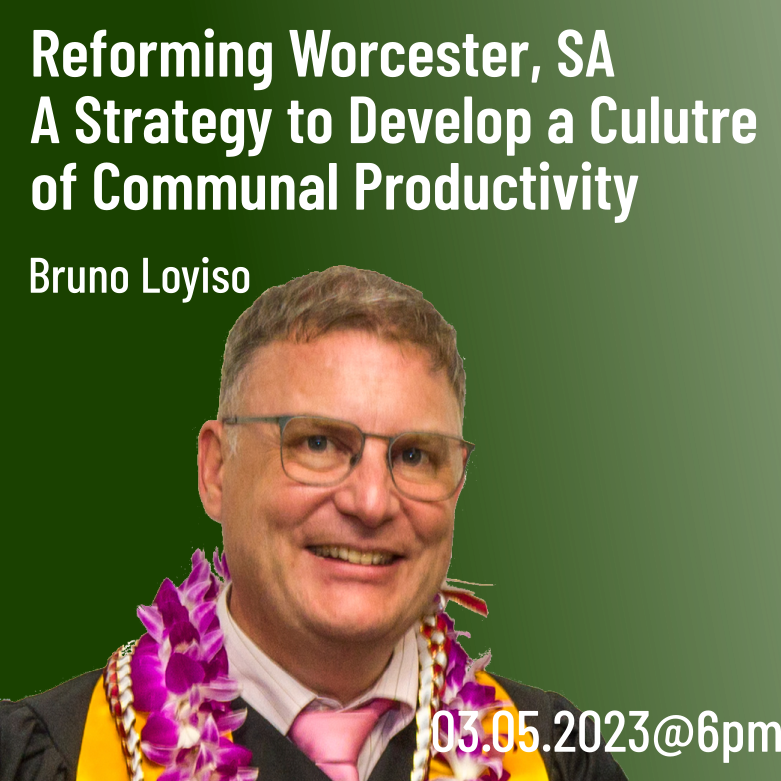Videos Online Forum
Online Forum with Roland Frutig
Agroforestry - way out of deficit farming
Understanding nature is an essential key to successful agriculture. Roland Frutig is someone who studies the complex interrelationships and interactions between plants, photosynthesis, soil cover and integrated livestock farming, and in particular practices and analyses them in practice in very different climates. One of the farms he supports with advice is Woodlands Farm, just a few Kilometres from Agabu - Ncheu, where our school, the sbcw, takes place. Some of us have visited the farm and are delighted with the results. Admittedly, agroforestry is not traditional agriculture, and it requires a rethink in many respects, which is not easy for those who have been farming with great effort for decades. This is exactly why we invited Roland to the Online Forum: because it is the core competence of King's Institute for Transformation to facilitate processes of rethinking.
Roland looks at nature from the perspective of a scientist, who wants to know how it works. When I listen to him as a believer, his explanations reveal to me the ingenuity and complexity of creation, and I realise that we are still a long way from unlocking the potential that lies dormant in nature. That is worship! We believe in the God who created heaven and earth in all their beauty and complexity, whose thoughts are much greater and more complex than anything we can grasp. From this perspective, we can learn a lot from Roland. You will discover that Malawi is still a long way from realising its potential in agriculture, both ecologically and economically.
Roland Frutig was born 1956 in Switzerland, studied law at the university of Bern. With a wide range of experiences in legal practice he shifted towards city planning and real estate development, for 15 years analyzing large scale projects for investors/real estate developers.
Since 1999, he is closely related to India with social projects, 15 years assistance in watershed development projects in Maharashtra, and close collaboration with indian partners in agroforestry implementation and integrated watershed development projects.
In 2015 Roland started learning from Indian farmers about agroforestry and natural farming. The visit of Bhaskar Save was the turning point learning to look at the basics of agriculture and how nature works. Getting connected with Ernst Götsch and his team in Brazil was the next turning point in natural approaches to agriculture and how to systematically mimicking forests.
Since 2017 assistance in building up Sristi Village close to Pondicherry, a home mentally disabled people and school for 50 multiple children.
Regular visits of agroforestry farms in India; self-education in agroforestry and exchange with partners in Brazil. Since 2019, Roland is building up training centers for agroforestry and rural development in Africa (Nigeria, Malawi, Uganda, Tanzania, Zimbabwe, Namibia). Training and mobilizing young people to plant their future. Within a short period of time Roland Frutig got connected/involved into agroforestry projects from sea level to 2’000 m in almost all different climate zones. The young leaders of the project are linked in a lose network (APN) where they exchange their experience.
Since 2021 a large part of Roland's work concentrates on setting up proper training materials and visuals for practical education at different levels. It is part of setting up the foundation for upscaling agroforestry and linking it to sustainable landscape development.
Collaboration with Agriculture University Jodhpur, India and Julius-Kühn-Institute (Federal Research Institute of Crop plants, Berlin, Germany).
Summary of the video
00:12 Agroforestry promotes sustainable farming practices.
Roland Frutig studied the interrelationships between plants, photosynthesis, soil, and livestock farming.
He is building training centers for agroforestry and rural development in various African countries.
04:13 Agroforestry promotes sustainable agriculture
Agroforestry aims to create surplus systems by giving back more to ecosystems
Agriculture faces challenges like deficit farming, monocultures, and climate change
15:39 Agroforestry is crucial for managing water availability and mitigating the impact of climate change.
Vegetation plays a key role in managing water availability and preventing soil erosion.
Agroforestry techniques can help mitigate the impact of climate change on seasonal crops and food security.
19:15 Agroforestry can help address water scarcity and prevent water runoff.
Agroforestry involves harvesting rainwater and controlling runoff to create a sustainable agriculture approach.
Techniques like contour trenches and terracing can help store and make water available for plants.
27:49 Grasses play a key role in soil development and regeneration.
Grasses help integrate cattle and can be fast-growing, profitable crops.
Grasses also aid in controlling water storage and preventing erosion.
32:41 Agroforestry allows for higher cattle density and integrated production on limited land.
Agroforestry systems enable two cows per hectare with integrated forage production.
Integrating seasonal crops, legumes, and high value plants boosts land productivity and income generation in the long-term.
40:39 Agroforestry involves planting diverse crops together for efficient growth
Planting different types of plants together, slow and fast growing, densifies plant material and speeds up growth process
Agroforestry allows for up to 4,000 trees per hectare with irrigation or 1,500-2,000 trees without irrigation, with space for seasonal crops
44:32 Agroforestry promotes perennial agriculture and natural pest control.
Agroforestry systems allow for growing various plants in shade, maintaining year-round greenery.
Integration of medicinal plants aids in pest control, with examples like Ginger and turmeric.
52:56 Agroforestry utilizes 20% of the land to yield more profit than seasonal crops on the remaining 80%.
Conservation farming and Pfumvudza plots are insufficient to help farmers escape poverty.
Combining legumes with seasonal crops in agroforestry leads to a more sustainable way of producing food.
56:48 Agroforestry maximizes farm productivity and sustainability
Agroforestry systems optimize nutrient cycling within the ecosystem, reducing dependence on external inputs
Farmers have the flexibility to choose diverse planting patterns tailored to their specific needs and environmental conditions
1:04:25 Promoting traceability and chemical-free food through agroforestry.
We support lead farmers in implementing agroforestry on small plots.
We need to create plant nurseries and seed banks to address the lack of plant material for agroforestry.
1:08:00 Agroforestry creates surplus and reduces dependency on external inputs.
Agroforestry systems promote permanent photosynthesis, nourish soils, and generate a continuous surplus.
Farmers are the assistants to Nature in producing our food and need to transition to working with complex agroforestry systems.
Online Forum with Derek Kirbow
The importance of food security as a nation
Derek completed his Masters degree in International Relations and Comparative Politics and then his PhD in International Development where he majored in Food and Water Security and minored in Community Development. It was only a short time before he joined the Department of Science and Technology at the University of the Nations, a Christian University with more than 500 locations. Derek was tasked with oversight of the Appropriate Technology Village where he earned his certification in Permaculture so as to bring this training to Youth With A Mission (YWAM). Since that time he has worked in various departments in Science and Technology and currently serves as an Associate Dean with the focus on curriculum development.
In all of this Derek's teaching has taken him to Samoa, Malawi, Colombia, Switzerland, England, South Africa, and dozens of other nations as an instructor in agriculture, sustainability, and community development. He is currently writing a textbook on Korean Natural Farming, a book on Tropical Permaculture, a training manual for holistic development, and several journal articles on the scientific application of site design on the global food crisis as it pertains to missions.
Summary of the video
Online Forum with Deon Labuschagne
We currently have a staff between 70 and 120 people on a daily basis. We run cattle and sheep, we have agroforestry and foundation farming training on these premises, while we also do a church and early child development, we have all sorts of other ministries, sports ministries, the church being the centre of that.
We are passionate about teaching people, especially in agroforestry. People come from all over Africa, Europe and Americas, and we teach them in e diversity of food resources from permaculture to foundational farming to agroforestry to subtropic farming to savery to holistic land management. Then we continuously always improve our knowledge and increase our repertoire in order to help believers becoming self sustainable in this time, where we live in.
My family are passionate to help people that wants to help them self. Leaders to rise up into their calling. The way that we approach all of this is to see how to contextualise into each individual's context and then helping them to strive to improve that local context".
Online Forum with Markus Reichenbach
When we say become an impactful leader, we mean a leader who can drive meaningful change.
Know that a great leader has influence. Markus experienced that many people are just on the position of leadership, but there is a difference between a leader and apposition. As it was already said above that a leader has influence, and they bring positive change in the society. Many people want to change the world, but only few people know how to do it. If you want change, first change yourself, then you can change the world. Luke 22: 24-27 the one who is elder should be like child as it has already articulated that leadership is not position but serving people for the positive change.
Do not see yourself as the most important if you are a leader. Jesus is the good example of a leader as he was in the form of God, but he emptied himself as a servant and being born in the likeness of the man. He humbled himself to the point of death.
Principles of leadership says leadership is not about me; Phil 2:5-9. You are also supposed to have a learning attitude. We need to take responsibility instead of blaming others. Markus observed three types of leadership:
1. Those who do not know what they should do
2. Those who do what they have to do
3. Those who do a little bit more.
Keep in mind that leaders are born to bring change and they always take risks.
Online Forum with Markus Gyger
Online Forum with Bruno Loyiso
And here is a short (10 minute) introduction video to the topic.
Online Forum with Angel and Asante Masanche
My take away was this one!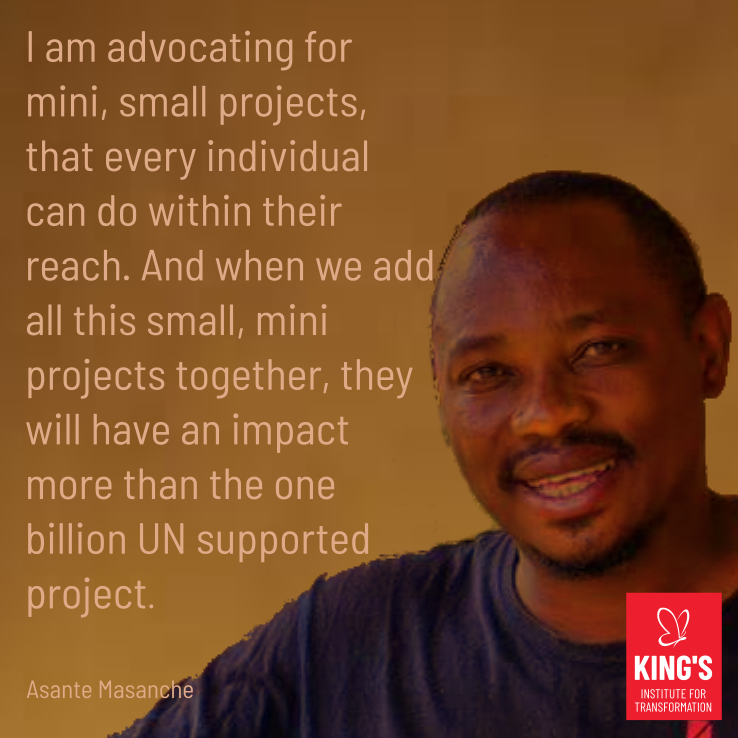
Click on the image and you can hear the testimony directly in the video. Visit
youtube.com/@kingsinstitute
to see the full video. You are invited to subscribe to the channel.
Online Forum with David McDonald
7.9.2022
Drawing from his long experience as a businessman and teacher, David McDonald has given us a broad, valuable overview of key elements essential in Business God's way. The content would easily provide the material for a week's training, and a lifetime is not long enough to put everything into practice! Here are a few key statements:
- Stay committed in the face of hard consequences
- Accept and welcome the unknown
- learn from mistakes. Leader journal their mistakes to learn from. Focus on them. "Sometimes you win, sometime you learn". (Maxwell)
These are only a view of highlights, there are many more in the presentation.
Make use of the presentation of the lecture: Doing Business God's Way by David McDonald
Watch the Video here.

